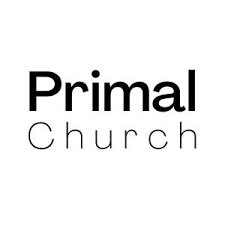
The Primal Church
This small commentary covers the first eight chapters of the book of Acts, up until the persecution that scattered the Jerusalem Church and the conversion of the Ethiopian eunuch but prior to the conversion of Paul. I have called the book The Primal Church, to distinguish it from ‘the Early Church” (29-313AD) or the Apostolic Church (29-95AD) both of which are much longer time-spans. The dating of Acts 1-8 is a matter of much contention but the years 29-37 AD or so seem likely dates for the time period from Pentecost to the martyrdom of Stephen. In these chapters the gospel goes from Jerusalem to Judea to Samaria, and finally with the Ethiopian eunuch “to the ends of the earth” (Acts 1:8). The Christians start off as loyal Jews but gradually are rejected by the Jewish Temple authorities until the tension erupts with the stoning of Stephen and the persecution that causes the disruption of the Jerusalem Church. At this point the Jewish authorities clearly no longer regarded Christians as truly Jewish, though undoubtedly many of the Christians still felt their Jewish heritage very deeply. Thus a new religion is born, a religion without a temple or a caste of priests, a religion that is wholly “from faith to faith” and which has as its central dynamic the name of Jesus of Nazareth. These are perhaps some of the most radically anti-establishment chapters in Scripture. Twice we hear the phrase ‘we must listen to God not men” and Stephen’s speech to the Sanhedrin makes very clear that Temples and religious authorities are not necessary for the Abrahamic life of true faith. At the same time these chapters explore a new way of communal living in the power of the Holy Spirit. Christians ate together, shared their goods together and prayed together and powerful miracles occurred in the community in unity. Many today are searching for new clues to community in the fractured isolation of the Church in the West. Acts 1-8 is a good starting point. There is an abundant sense of miraculous as it becomes obvious after Pentecost that the powers of Jesus Christ are being exercised through His body the Church which now heals in His Name and does mighty miracles and exorcisms. This healing power starts with the apostles, and then moves also to the deacons via the laying on of hands. The Church is not without her problems though – there is the greed and lying of Ananias and Sapphira, the problem with the distribution of food to the Greek-speaking widows, the attempt by Simon Magus to “buy the Holy Spirit” and various incidents of persecution and harassment chiefly at the hands of the Sanhedrin culminating in the martyrdom of Stephen. The apostles handle all these challenges wisely and the respect for their leadership only grew stronger. They give us many wise patterns for church leadership today. Luke, the apostle, the beloved physician and the companion to Paul is the undoubted author of Acts, which is a continuation of his gospel and is addressed to the same person “Theophilus” or “friend of God”. This may be an actual person, possibly Roman official who Luke was assembling a defense of Christianity for. Or it may be just another way of saying “dear Christian reader”. This is explored at length in standard Introductions to the New Testament - such as that by Guthrie. You may also find some valuable information on Luke-Acts in many of the better study bibles.

